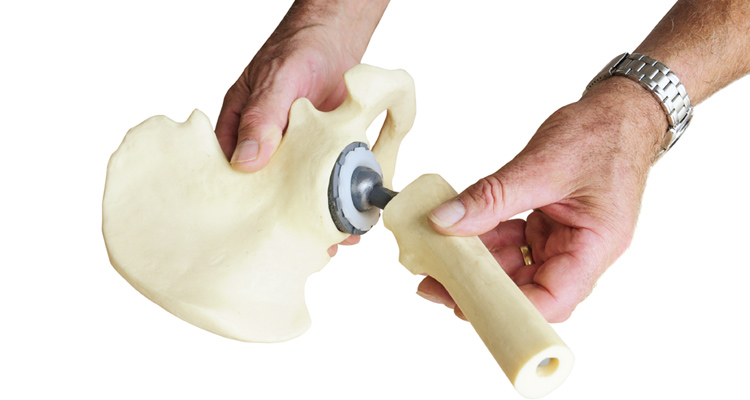Danville Regional Medical Center’s State of the Art Surgical Services
Your orthopedic doctor and you have decided that you need a joint replacement and now it’s time to prepare yourself for this new stage of your life. Although this is going to likely drastically improve your quality of life, it is not going to be an easy path. You are going to have some things to take care of before surgery, the day of surgery, and after surgery. The professionals at Danville Regional Medical Center are with you every step of the way.
What is Knee Replacement Surgery?
If your knee is severely damaged by arthritis or injury, it may be hard for you to perform simple activities such as walking or climbing stairs. You may even feel pain during rest, when sitting, or when standing. Successful joint replacement surgery can give most people a new lease on life. Once your joint has completely healed, you should expect the following benefits from your surgery:
• Reduces or eliminates pain
• Restores lost range of motion
• Lets you resume many of your normal activities
• Improves appearance of deformed joints
Before Surgery
One of your first stops is at Joint Class where Jessica Bernardez, Clinical Manager at DRMC, will lay it all out for you. “Joint Class is held for patients who are going to have total hip and knee replacement surgery. We discuss what is going to happen before and after surgery,” Jessica says. “We have a two-way conversation that thoroughly explains the process so that every patient knows exactly what to expect. We provide a tour of the facility and help create a plan that makes the experience as seamless as possible. I walk them through exercises they can do before surgery to strengthen the different muscles they will need while their new joint heals. And the patient will also learn what to expect with their post-operative rehabilitation.”
Surgery Day
The procedure itself takes two to four hours. The orthopedic surgeon will remove the damaged cartilage and bone and then position the new metal, plastic, or ceramic joint to restore the alignment and function of your joints. Cindy Smith is the Surgical Services Director overseeing all types of surgical procedures. “Our ultimate goal is high quality and safe care that results in the best possible outcomes for the patient.”
Before leaving the hospital, be sure to know the following things
– How to take your medications
– What supplies to use and when to change bandages
– When your stitches or staples will be removed
– When you will see your surgeon again for a follow-up
– Answers to any questions you may have
After Surgery
After your surgery, there will be some routine activities that you will need to do a little differently. For a short period you will need a little extra help, so choose a relative or friend to be your coach. Recovery times are different for every patient and can be impacted by how much pre-surgery exercising and strengthening the patient underwent. You have your choice of rehabilitation centers and are not restricted to any particular provider. In fact, it’s important that you tour rehab facilities before your surgery so that you have a plan in place. Depending on whether it’s hip or knee, you should expect to be back on your feet in a few weeks with twelve weeks or more of rehabilitation.
Danville Regional Medical Center has a comprehensive rehabilitation program and one that will move to the new YMCA when it opens in a year and half. Scott Oaks at Danville Regional Sports Medicine and Rehab (formerly Southside Spine and Rehab) says that it’s important to know that it will take a while for the body to adapt. “Getting that movement back after a surgery is uncomfortable. But rehab is not constantly painful. Each exercise basically lasts two or three minutes and the patient will have a little soreness afterwards. The pain shouldn’t last for hours and hours.”
The success of your surgery also depends on how well you follow your surgeon’s instructions during the first few weeks after surgery. The proper amount of rest, a balanced diet, and appropriate exercise are critical components of your recovery. From start to finish, Danville Regional will help you through every step of the process.
